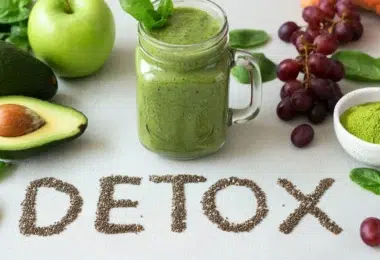
Kratom and Yoga: A Holistic Approach to Wellness
Introduction: The Synergy of Kratom and Yoga In today’s fast-paced world, people are increasingly turning...
View PostAlaska is the largest state by area, yet it ranks as the 48th least populated. Fortunately, “The Last Frontier” remains welcoming to the Mitragyna speciosa plant and its related products. To make it easier for you to obtain quality kratom, we’ve summarized key points regarding kratom legality in Alaska and provided additional information on how to buy quality kratom in the state.

Although kratom is fully legal in Alaska, it’s always good to have a handle on the laws throughout the United States. When traveling, it’s important to avoid carrying kratom into states where it’s prohibited.
States where kratom is prohibited:
States with local restrictions:
States with age restrictions:
Eleven states have adopted the Kratom Consumer Protection Act (KCPA), establishing specific regulatory guidelines for kratom products. This regulation promotes product consistency, supports educational initiatives, enhances research into kratom’s potential benefits and risks, and helps eliminate unscrupulous vendors from the market.
Why do Golden Monk and the AKA advocate for regulations such as the KCPA? We support these provisions because they safeguard kratom users in several crucial ways, including:
Regulations enable rigorous quality assurance and safety measures, ensuring that kratom products remain pure and uncontaminated. This stringent quality control protects consumers from manufacturing lapses, guaranteeing that products are free from contaminants and adulterants.
The kratom community strongly supports increased scientific research and testing to deepen our understanding of kratom’s efficacy, recommended usage, and overall impact on users. While existing studies highlight its potential benefits, much of the available data is anecdotal. Advocating for more robust research could substantiate kratom’s safety and efficacy through empirical evidence.
By governing how kratom is marketed, consumers can make more informed purchasing decisions. Currently, buyers must navigate a complex landscape of vendor claims and independently ascertain the credibility and standards of each provider. Regulated marketing would ensure the availability of clearer, more reliable information, guiding consumers toward safer choices.
Additionally, Golden Monk endorses age restrictions on kratom sales, agreeing that it should be accessible only to adults over 18, in alignment with the commonly mandated provisions in KCPA laws.
Alaska offers a variety of brick-and-mortar kratom vendors, primarily located in major cities such as Anchorage, Fairbanks, and Juneau. However, the best deals and highest quality kratom are often found online.
At Golden Monk, we meticulously test our products at every stage of the process—from the farm to our processing facilities, through manufacturing, and up to shipping and distribution. Our comprehensive third-party testing ensures that each product exceeds industry standards.

Golden Monk delivers top-quality kratom products through both brick-and-mortar shops in Alaska, as well as through our online shop.
Here are some of our most popular products in the state:
Golden Monk’s Kratom Gummies each contain 10mg of premium kratom extract. They are especially popular with kratom users who are looking for an easily accessible method of taking kratom.
Our Kratom Capsules contain 500mg of premium kratom powder. You can purchase 250, 500, or 1000 capsules made from our loose-leaf kratom varieties, including Green Maeng Da, Red Maeng Da, White Maeng Da, Green Malay, Red Bali, White Bali, Red Borneo, Green Borneo, White Borneo, Red Indo, and Red Thai.
Golden Monk’s Maeng Da Kratom comes in green vein, red vein, or white vein varieties of the popular horned leaf strain of the Mitragyna speciosa plant.
Golden Monk’s White Sumatra Kratom comes from Sumatra in Indonesia and is sold in quantities of 250g to 1000g (1kg). It is similar to White Vein Bali and White Vein Borneo.
Our Red Borneo Kratom is one of our most popular strains nationwide, coming in 250g, 500g, or 1000g (1kg) quantities.
Kratom is a plant native to Southeast Asia, particularly Indonesia, Malaysia, and Thailand. For centuries, locals have used its leaves, which are reputed to offer benefits related to both relaxation and energy, depending on the strain and serving size.
Kratom’s legal status varies across the US. Some states have imposed bans or restrictions, while others, like Alaska, allow its use without regulation. Refer to the map above for more detailed information.
Kratom production involves drying the leaves of the Mitragyna speciosa tree and grinding them into a fine powder. Some brands also manufacture kratom in liquid extracts and other forms.
Good Manufacturing Practice (GMP) refers to FDA-enforced regulations that ensure dietary products are consistently produced and controlled according to quality standards. Compliance with GMP is essential for kratom producers to ensure product safety, especially as kratom typically arrives in the U.S. in a raw form that may not meet established food safety standards.
When used responsibly, most kratom users do not experience adverse effects. However, depending on serving size and individual tolerance, potential effects of kratom use may include nausea, constipation, or dizziness.

While some individuals find that kratom promotes relaxation and aids sleep at certain serving amounts, its effects are subjective and can vary widely among users.
At Golden Monk, we take pride in being an audited member of the American Kratom Association cGMP (Current Good Manufacturing Practices) program. You can review our Certification of Analysis to understand better how we maintain consistent, high-quality standards in our manufacturing facilities.
Enjoy kratom responsibly, and be sure to check out all of our kratom products here.

Introduction: The Synergy of Kratom and Yoga In today’s fast-paced world, people are increasingly turning...
View Post
In the search for natural wellness solutions, kratom has emerged as a powerful ally in...
View Post
Kratom’s popularity throughout the U.S. isn’t slowing down, but it’s also safe to say kratom...
View PostPRODUCT CATEGORIES
Must be 21 or over to purchase these products. The manufacturer and distributors of these products assume no liability for the misuse of these products. We do not ship to states, counties, municipalities, and other jurisdictions in which the sale or possession of these products is prohibited.
We conduct marketing to promote our products and services, we may also market, promote, or offer for sale Products that are manufactured, provided, or developed by third-party entities. Pursuant to our Privacy Policy & Terms of Use.
These statements have not been evaluated by the FDA. The products offered for sale on this site are not intended to diagnose, treat, cure, mitigate or prevent any disease and/or affect any structure or function of the human body.
By clicking yes you also confirm that you have read and agree to GoldenMonk's Terms of Service and Privacy Policy and Goldenmonks’s service provider’s terms of service and privacy policy.